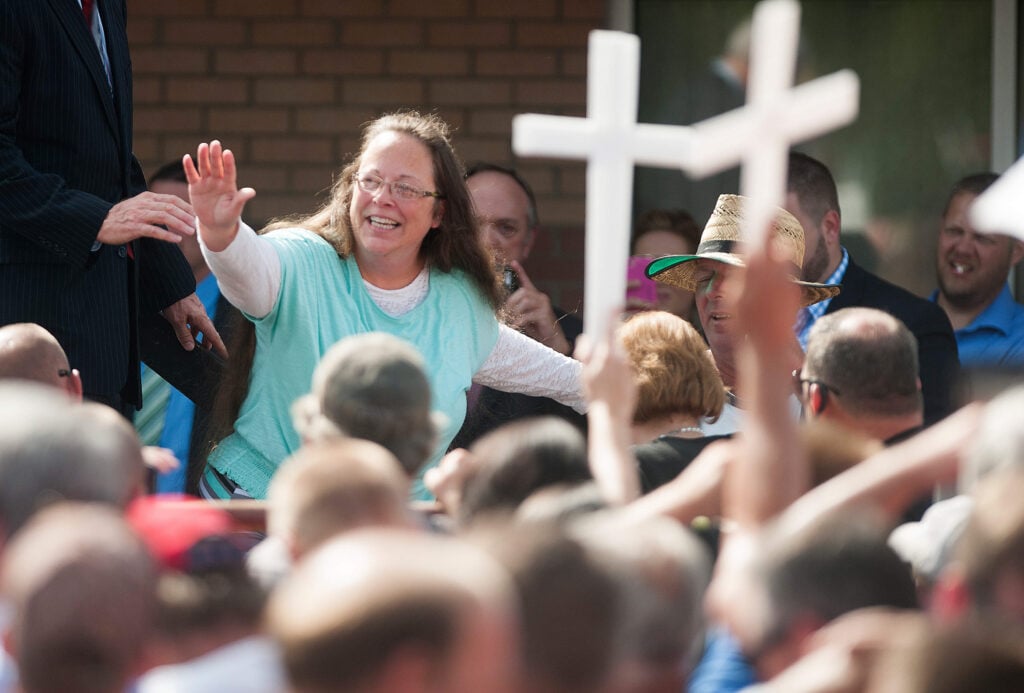Ten years after the landmark Obergefell v. Hodges decision made marriage equality the law of the land, the Supreme Court could soon face its first direct challenge to that ruling.
In 2015, Kim Davis was the elected county clerk in Rowan County, Kentucky, when she refused to issue marriage licenses to same-sex couples following the Obergefell decision. Citing her religious beliefs, Davis defied a court order to comply with the law and spent six days in jail.
Her defiance made her a hero to the religious right and a symbol of resistance to LGBTQ+ rights. It also sparked years of litigation, culminating in a jury awarding $100,000 in emotional damages to one couple she denied, plus $260,000 in attorneys’ fees.
Petition Aims to Erase Marriage Equality Precedent
Last month, Davis filed a petition asking the Supreme Court to overturn those damages — and Obergefell itself.
Her argument: The First Amendment’s free exercise clause should shield her from personal liability for refusing marriage licenses on religious grounds. Her filing calls the 2015 decision “egregiously wrong” and “legal fiction.”
“If there ever was a case of exceptional importance,” wrote her attorney Mathew Staver, “the first individual in the Republic’s history who was jailed for following her religious convictions regarding the historic definition of marriage, this should be it.”
This marks the first formal bid to overturn Obergefell since the 2015 ruling. It comes amid a growing conservative push to roll back marriage equality — with at least nine states in 2025 introducing bills to block new same-sex marriage licenses or passing resolutions urging the Supreme Court to reverse the decision, according to Lambda Legal.

What Does This Mean
Still, legal experts say Davis’ challenge is unlikely to succeed.
“Not a single judge on the U.S. Court of Appeals showed any interest in Davis’s rehearing petition,” said William Powell, attorney for David Ermold and David Moore, the now-married couple at the center of the case. “We are confident the Supreme Court will likewise agree that Davis’s arguments do not merit further attention,” he told ABC News.
What Happens Next
The Supreme Court will consider Davis’ petition in a private conference this fall. If the justices take it up, oral arguments could be scheduled for spring 2026 with a decision expected by June 2026.



